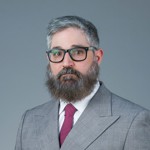Obama Highlights Science, Technology on UK Trip
President Obama's European trip this week began in the United Kingdom and while there, he focused some attention on science and technology issues of global interest.
In a joint press conference, United Kingdom Prime Minister David Cameron and Obama both spoke on a key collaboration initiative between the two nations: Science education. Obama spoke in generalities, but called science education "critical to our future prosperity" and said that the U.S. and U.K could continue to emphasize "investments in education, science, technology, infrastructure -- things that help our economies grow"
Interestingly, Obama was asked about the extradition case of Gary McKinnon. McKinnon, a Scottish hacker accused of breaking into 97 NASA and Defense networks, is alleged to have deleted several critical files from government operating systems. Obama said McKinnon "is now in the hands of the British legal system," though Cameron said the U.K must follow "the proper processes and make sure this case is dealt with in the proper way."
During an historic speech to Parliament, Obama also mentioned the changing landscape of the 21st Century, including business and scientific innovation and discovery.
That gives nations like the United States and the United Kingdom an inherent advantage. For from Newton and Darwin to Edison and Einstein, from Alan Turing to Steve Jobs, we have led the world in our commitment to science and cutting-edge research, the discovery of new medicines and technologies. We educate our citizens and train our workers in the best colleges and universities on Earth. But to maintain this advantage in a world that's more competitive than ever, we will have to redouble our investments in science and engineering, and renew our national commitments to educating our workforces.
Obama also emphasized the importance of free thought and rights in a digital age, with the caveat that security from cybercrime is a shared responsibility for developed nations like those in the NATO alliance.
Indeed, our efforts in this young century have led us to a new concept for NATO that will give us the capabilities needed to meet new threats -- threats like terrorism and piracy, cyber attacks and ballistic missiles. But a revitalized NATO will continue to hew to that original vision of its founders, allowing us to rally collective action for the defense of our people, while building upon the broader belief of Roosevelt and Churchill that all nations have both rights and responsibilities, and all nations share a common interest in an international architecture that maintains the peace.
Besides emphasizing broad cooperation between the United Kingdom and the United States, Obama also appears to be promoting greater collaboration on science and technology issues.
NEXT STORY: SSA Advisors Coming to a Screen Near You






